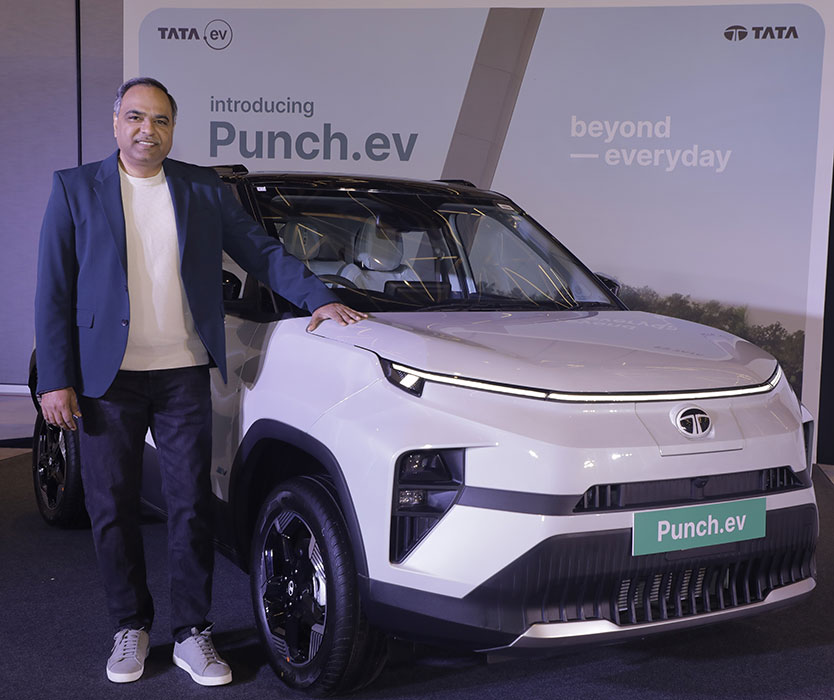India–US Trade Tensions Rise Over Steel and Auto Tariffs NMDC Limited reports a 38% drop in Q4 FY24 consolidated net profit RINL to Raise $23 Million Through Land Sales Amid Crisis

Tata Motors, an Indian Multinational automotive company, plans to commence production of electric vehicles at the Sanand plant, acquired from Ford India, from April this year, as per a top company official.
Tata Passenger Electric Mobility Ltd, a unit of Tata Motors, acquired the facility from Ford India for ₹725.7 crore in January last year.
"We are planning to commence electric vehicle production at Sanand with Nexon EV from April," Tata Motors Passenger Vehicles MD Shailesh Chandra told PTI.
The company has already commenced production of internal combustion engine-powered versions of the Nexon at the manufacturing plant with an installed capacity of 3 lakh units per annum.
It can be further scaled up to 4.2 lakh units per annum.
Chandra said the company is also looking to produce upcoming models at the facility.
When asked about the company's product pipeline, he said that Curvv EV would be introduced around this calendar year's second or third quarter.
"We are also hoping that by the fag-end of this year, we should also be able to introduce Harrier EV and internal combustion engine (ICE) version of Curvv," Chandra said.
On sales outlook for the next fiscal, he noted that the passenger vehicle industry is expected to grow by 5%.
"We have few launches planned, so we will be targeting to grow better than the industry," Chandra stated.
On the Budget wishlist, he stated that extending FAME benefits to personal electric cars would help accelerate the country's electrification growth.
Chandra noted that an increase in sales of electric cars was witnessed in states like Maharashtra and Gujarat when they offered incentives to the buyers.
"Also, there is a problem of inverted duty structure in EVs, which is also something we have been asking," he noted.
About talks on giving some concessions to a US-based EV major, Chandra said: "Our position is very simple; we are not worried about any specific competitor. Any player who is ready to participate in the EV space with upfront investment in localisation or charging infra development is welcome".
Also Read : Hindustan Zinc mined metal output marginally down at 299 KT Q4 Shyam Metalics adds rail infrastructure to their steel mill in Odisha